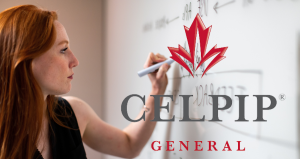How to Become a Bookkeeper in BC: A Step-by-Step Guide
2024-06-20 2025-03-14 16:54How to Become a Bookkeeper in BC: A Step-by-Step Guide

How to Become a Bookkeeper in BC
Are you interested in starting a rewarding career as a bookkeeper in British Columbia? Bookkeeping is a vital skill for businesses, and with the right training, you can become a certified professional in no time. Whether you’re looking for bookkeeping courses online BC or in-person classes, this guide will walk you through everything you need to know to get started.
Table of Contents
ToggleWhat’s the Demand for Bookkeepers in BC?
Bookkeepers are in high demand across industries, making this a stable and lucrative career choice. According to the Government of Canada Job Bank, the job outlook for bookkeepers in British Columbia is strong, with a “good” rating for employment growth over the next few years.
- Job Openings: There are expected to be 4,500 job openings for bookkeepers in BC between 2022 and 2031.
- Employment Growth: The demand for bookkeepers is projected to grow steadily, driven by the need for financial record-keeping in small businesses, accounting firms, and other sectors.
- Industries Hiring: Bookkeepers are needed in a variety of industries, including:
- Accounting and tax preparation firms.
- Retail and wholesale trade.
- Construction and real estate.
- Healthcare and social services.
- Non-profit organizations.
What Does a Bookkeeper Do?
Bookkeepers play a crucial role in managing a company’s financial records. Their responsibilities include:
- Recording financial transactions (e.g., sales, purchases, payments).
- Managing payroll and employee benefits.
- Preparing invoices and tracking accounts receivable/payable.
- Generating financial reports for businesses.
- Ensuring compliance with tax regulations.
Bookkeepers are in high demand across industries, making this a stable and lucrative career choice.
What is the average bookkeeper salary in BC
According to Indeed, the average pay for a bookkeeper is $26.81 per hour in British Columbia and $26.56 per hour across Canada.

You may also take reference from the Government of Canada for detailed data:

Skills Needed to Become a Bookkeeper in BC
To excel as a bookkeeper, you’ll need a combination of technical and soft skills:
Technical Skills
- Proficiency in accounting software (e.g., QuickBooks, Sage, Xero).
- Advanced knowledge of spreadsheet tools like Microsoft Excel or Google Sheets.
- Understanding of payroll systems and tax regulations.
- Ability to generate and interpret financial reports.
Soft Skills
- Attention to Detail: Accuracy is critical in bookkeeping.
- Time Management: Ability to meet deadlines and manage multiple tasks.
- Communication: Clear and professional communication with clients and colleagues.
- Problem-Solving: Ability to identify and resolve discrepancies in financial records.
Steps to Become a Bookkeeper in BC
Step 1: Understand the Requirements
To become a bookkeeper in BC, you’ll need to meet certain educational and professional requirements. Here’s what you should know:
- Education:
- Complete a bookkeeping or accounting program from a recognized institution.
- Programs typically cover topics like financial accounting, payroll management, and tax preparation.
- Certification (Optional):
- Certified Bookkeeper (CB) from the Canadian Bookkeepers Association (CBA).
- Payroll Compliance Practitioner (PCP) if you want to specialize in payroll.
Step 2: Enroll in Bookkeeping Courses Online BC or In-Person
The Accounting Diploma program at Create Career College (CCC) is designed to prepare students in the field of accounting, finance, and taxation. Throughtout the course, you’ll learn accounting fundamentals such as the Canada Accounting system, payroll administration, Sage 50, Quickbooks, business communication and law.
The structure of the accounting program includes lectures, assignments, and projects, providing a robust foundation aligned with the requirements of the Chartered Professional Accountant (CPA) and Public Business Accountancy.
Step 3: Gain Practical Bookkeeping Experience
After completing your training, gain hands-on experience through:
- Internships or entry-level bookkeeping roles.
- Freelance or volunteer opportunities to build your portfolio.
- Networking with professionals in the field.
At Create Career College, our Accounting Diploma Program encompasses all essential areas of job-related accounting topics, including accounting principles, business law, Sage 50, QuickBooks, bookkeeping, payroll administration, taxation, finance, and more.
Step 4: Get Bookkeeping Certified (Optional)
While certification isn’t mandatory, it can enhance your job prospects. Consider certifications like:
- Certified Bookkeeper (CB) from the Canadian Bookkeepers Association (CBA).
- Payroll Compliance Practitioner (PCP) for payroll specialization.
Completing all of the courses in CCC’s Accounting 2-year Diploma with Co-op will align you with Certified Professional Bookkeeper (CPB), Canada’s largest and fastest-growing certifying body of bookkeepers. Graduates will have access to a preferred student membership rate with member benefits which provides access to continuing education and networking opportunities with bookkeeping professionals across Canada.
Step 5: Start Your Bookkeeping Career
Once you’ve completed your training and gained experience, you can:
- Work for accounting firms, small businesses, or corporations.
- Specialize in areas like payroll or tax preparation.
How to become a bookkeeper in BC : Frequently Asked Questions (FAQs)
No, a degree is not required. However, completing bookkeeping courses online BC or in-person is highly recommended to gain the necessary skills.
Most bookkeeping programs can be completed in 6 to 12 months, depending on the course and your pace of study.
Yes, many institutions offer bookkeeping courses online BC, allowing you to study flexibly from home.
Bookkeepers focus on recording financial transactions, while accountants analyze and interpret financial data. Bookkeeping is often the first step toward an accounting career.
—————————————–
Related articles:
- Visitor Visa to Study Permit: Come to Canada as a Mature Student
- Future Jobs in Business Administration
- Change Your Career by Pursuing an Accounting Diploma Co-op Program in 2024
- Discover CCC’s NEW ESL CLASS 2024: Elevating Excellence in English Language Schools in Vancouver
—————————————–
Related Posts
CELPIP Listening Strategies: 5 Tips for High Scores
TEF Canada Preparation: Guide to NCLC 5 & NCLC 7 in French Speaking
CELPIP reading practice test (with answer)
What’s a Good TEF Canada score?
Latest News
CCC Admission Department


Latest Posts
- CELPIP Listening Strategies: 5 Tips for High Scores

- How to Archive B2 Level French in TEF Canada Speaking with Examiner Insights & Strategies



- TEF Canada Preparation: Guide to NCLC 5 & NCLC 7 in French Speaking



- CELPIP reading practice test (with answer)



- What’s a Good TEF Canada score?



- CELPIP Writing Samples with Answers (Task 1 & Task 2)



- Top 12 Highest Paying Digital Marketing Jobs



- Francophone Community Immigration Pilot | New Path to Canada PR in 2025
















